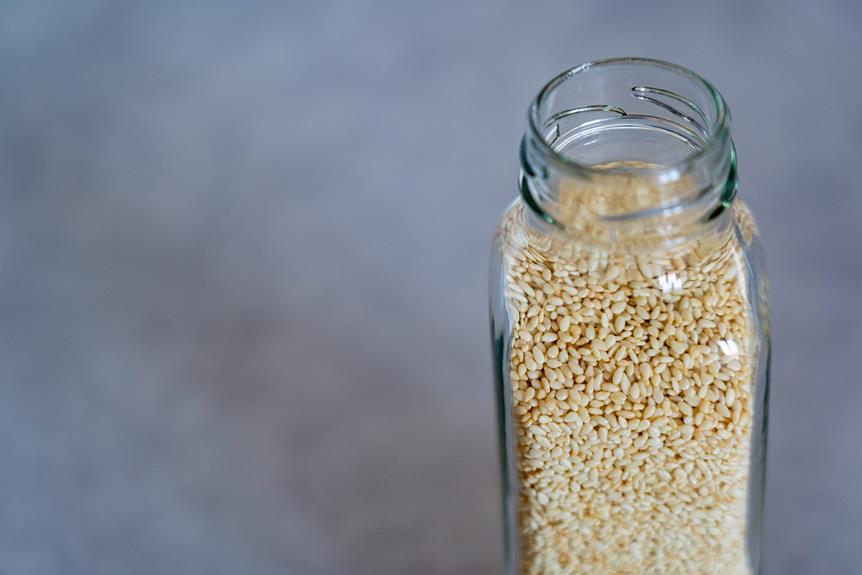The number of seniors in the United States is projected to reach 98 million by 2060. With the aging population on the rise, seniors need to prioritize their health and well-being, especially when it comes to meal planning.
Planning meals not only ensures that seniors receive the essential nutrients they need, but it also helps them save money and stay organized.
Let’s explore the benefits of meal planning for seniors, the essential nutrients they should focus on, tips for affordable meal planning, easy and quick meal planning ideas, strategies for special dietary needs, and how to stay organized throughout the process.
By incorporating meal planning into their routine, seniors can greatly improve their overall health and quality of life.
Benefits of Meal Planning for Seniors
Meal planning for seniors offers many benefits that can improve health and well-being.
Whether you want to lose weight or have specific dietary preferences, meal planning can help you reach your goals and ensure satisfying meals every day.
If weight loss is your goal, meal planning provides a structured approach to controlling portion sizes and selecting nutritious foods. Planning meals allows for making healthier choices and avoiding impulsive decisions that may lead to overeating. Including a variety of fruits, vegetables, whole grains, and lean proteins in your meal plan can support weight loss efforts and provide essential nutrients.
For picky eaters, meal planning gives more control over meals and allows accommodating preferences. Choosing recipes that incorporate favorite ingredients while maintaining a balanced diet becomes possible. Planning also provides the chance to try new flavors and expand the palate, making mealtime more enjoyable.

Essential Nutrients for Senior Meal Planning
Creating a nutritious meal plan for seniors involves considering the essential nutrients needed for their health and well-being. As we age, our nutritional needs change, so it’s crucial to focus on getting the right nutrients.
One important nutrient for seniors is protein. Protein helps maintain muscle mass, supports immune function, and aids in wound healing. Seniors should aim for around 1 to 1.2 grams of protein per kilogram of body weight.
To meet these needs, include nutrient-dense foods in the meal plan. Nutrient-dense foods are rich in vitamins, minerals, and other beneficial compounds. Good options include lean meats, poultry, fish, eggs, dairy products, legumes, nuts, and seeds.
Tips for Affordable Meal Planning for Seniors
Meal planning for seniors on a budget doesn’t have to be complicated. Here are some cost-saving tips to help you create nutritious and affordable meals.
To start, meal prepping is a great way to save money. Plan your meals for the week and make a shopping list accordingly. Buying ingredients in bulk can help you take advantage of discounts and reduce waste. You can also save time and money by preparing meals in advance and freezing them for later.
When it comes to ingredients, opt for affordable options. Canned beans and eggs are cost-effective sources of protein. Seasonal fruits and vegetables aren’t only cheaper but also more nutritious. Grains like rice or pasta can serve as a base for your meals as they’re filling and inexpensive.
Shopping smart is also important. Compare prices, look for sales, and use coupons. Consider buying store brands instead of name brands to save money. If possible, purchase produce from local farmers’ markets for a cheaper option.
Easy and Quick Meal Planning Ideas for Seniors
Meal planning for seniors can be made easier with these simple and quick meal ideas. As a senior, it’s important to prioritize your health by consuming nutritious recipes that provide the necessary nutrients.
One option is to use meal delivery services specifically designed for seniors. These services offer a variety of pre-prepared meals that are both healthy and convenient, taking the stress out of meal planning. They ensure you have nutritious meals ready to enjoy.
Another idea is to create a weekly meal plan using easy-to-make recipes. Choose recipes that require minimal preparation and cooking time, like salads, stir-fries, and soups. You can also save time by using kitchen gadgets like slow cookers or instant pots, which make meal preparation a breeze.
Meal Planning Strategies for Special Dietary Needs of Seniors
Seniors with special dietary needs require specific meal planning strategies to ensure optimal nutrition and health. When planning meals for seniors with food allergies, it’s important to consider their specific allergens and avoid any potential triggers. Careful reading of food labels is crucial, and ingredients that are free from allergens like nuts, gluten, or dairy should be chosen.
For seniors with diabetes, meal planning should focus on monitoring carbohydrate intake and maintaining stable blood sugar levels. This can be achieved by incorporating whole grains, lean proteins, and a variety of fruits and vegetables into their meals. It’s also important to limit the consumption of sugary foods and beverages.
Here are some key considerations for meal planning strategies for seniors with special dietary needs:
- Food allergies: Read food labels carefully and avoid allergens.
- Diabetes: Monitor carbohydrate intake and maintain stable blood sugar levels. Incorporate whole grains, lean proteins, fruits, and vegetables.
How to Stay Organized With Senior Meal Planning
To stay organized with senior meal planning, it’s important to establish a system that allows for efficient preparation and easy access to meals. One way to achieve this is by using meal planning tools.
These tools can help you keep track of your planned meals, grocery lists, and recipes all in one place. They come with features like recipe suggestions, nutritional information, and the ability to customize your meals based on dietary restrictions or preferences.
Another essential element of staying organized with senior meal planning is using meal prep containers. These containers come in various sizes and are designed to store and transport your prepared meals.
They help you portion out your meals in advance, making it easier to stick to your meal plan and avoid overeating. Meal prep containers also make it convenient to pack your meals for outings or when you’re on the go.
Conclusion
If you’re a senior looking to improve your diet or a caregiver helping a loved one, meal planning is a fantastic way to ensure nutritious and affordable meals.
By considering the important nutrients seniors need, exploring quick and easy meal ideas, and accommodating special dietary needs, you can create delicious and satisfying meals.
Meal planning can become a stress-free and enjoyable part of daily life with some organization.







